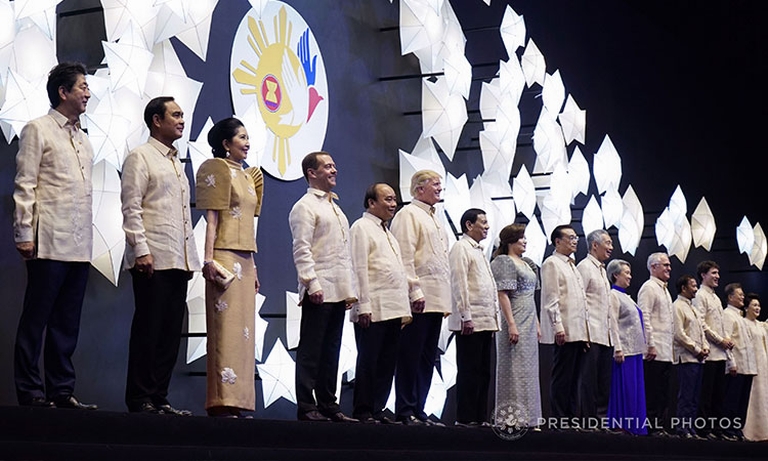Commentaries
The views expressed are the author's alone and do not constitute official positions of APPFI.
The views expressed are the author's alone and do not constitute official positions of APPFI.

Photo from Rappler
Manila is now under pressure after the Japanese embassy expressed concern over a statue to commemorate "comfort women" put up along Roxas Boulevard on December 8. Wartime atrocities, including comfort women forced into sexual slavery by the Japanese Imperial Army during World War II, continue to mire Japan’s relations with its neighbors, notably China, Korea, and the Philippines. But over time, Japan’s soft power, investments, and overseas aid softened the position of most Southeast Asian countries, including the Philippines. While surviving comfort women became national figures in Korea, their Filipina counterparts have become marginalized and Philippine authorities have become largely indifferent to their legitimate demands for an official apology and compensation from Japan.

Photo from PCOO.gov.ph
The Association of Southeast Asian Nations was established in 1967, driven by the desire of states to cooperate in various fields, and to promote regional peace and stability. In the last fifty years, ASEAN achieved much and fostered cooperation between member-states in free trade agreements, agriculture, trade, tourism, energy and culture; promoting human rights, anti-trafficking of persons and cybersecurity; protecting the environment, disaster management, emergency response; as well as in science and technology. Still, the next steps on ASEAN’s path – represented by its 2025 Vision - are rife with challenges.
As it marked its 50th year, ASEAN’s rotating chairmanship was delegated to the Philippines. The Duterte government was kept busy year-round organizing vital meetings for the organization and its dialogue partners. Powerful leaders around the region stretching from India to the Pacific flew to Manila to take part in different events concerning ASEAN and East Asia. Logistics-wise, the chairmanship was considered a tremendous success by the Philippines. The year of ASEAN chairmanship involved organizing and hosting the 30th and 31st ASEAN Summits, the East Asia Summit, the ASEAN Regional Forum, vital Ministerial Meetings, Regional Comprehensive Economic Partnership (RCEP) Leaders’ Summit, meetings between ASEAN and its dialogue partners, etc. Such meetings normally include a comprehensive report of where the involved parties stand with respect to certain issues, the progress they have made, and proposals on how they can move forward.

Photo from Gazette Review by Lindsey Burrows
Joint development of maritime resources is hailed as a feasible approach between countries that are locked into overlapping boundaries or maritime claims. The term “joint development” is loosely used as simply referring to developing and exploiting resources together. As an international practice, joint development is in line with the United Nations Law of the Sea (UNCLOS) wherein states, pending agreement of delimitation of boundaries or continental shelf, shall make an effort to enter into provisional arrangements of a practical nature which shall be without prejudice to the final delimitation.
Fareed Zakaria, writing on the “post-American world” in 2008, began by saying “this is not a book about the decline of America, but rather about the rise of everyone else”. He argued that while America would still be the most powerful nation on earth, its relative power will be diminished. US liberal policies themselves had encouraged growth in other parts of the world, allowing China and India in particular to become powers in their own right, he said.
In October 2017, the same author Zakaria wrote a short opinion piece about the historic significance of China’s 19th Communist Party Congress. With a fresh 5-year mandate and having emerged as the strongest Chinese leader since Deng Xiaoping, President Xi Jinping announced to the world that not only would China continue to strive to be a power, but that its own model offered “a new choice” for other countries. Zakaria then cited surveys by Pew Research Center that showed how countries like Australia, Netherlands and Canada now have a more favorable view of China than of the U.S., and that Germans, Chileans and Indonesians were among the people who had greater confidence in the leadership of Xi Jinping than that of Donald Trump. He observed, this time, that "The shift in reputation that we are witnessing around the world is not so much about the rise of China but rather the decline of the United States."